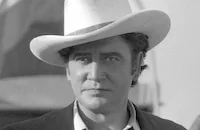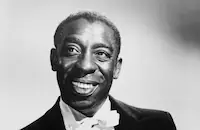Hell's Highway

Brief Synopsis
Cast & Crew
Rowland Brown
Richard Dix
Tom Brown
Rochelle Hudson
C. Henry Gordon
Oscar Apfel
Film Details
Technical Specs

Synopsis
Determined to fight back against his vicious jailers, whose use of a disciplinary "sweatbox" results in the death of a prisoner named Carter, chain-gang convict Frank "Duke" Ellis encourages his fellow prisoners to "keep the joint hot" and prevent completion on "Liberty Road," a highway project contracted by the unscrupulous William Billings. At the same time, Duke and two other convicts plan an escape, which involves a phony leg chain and a ruse whereby Matthew the Hermit, a fortune-telling bigamist, distracts guard Pop-Eye Jackson by informing him that he has "seen" Pop-Eye's wife committing adultery. As Duke sneaks away, however, he discovers that his younger brother Johnny has just arrived in the camp and returns to his bunk. By promising Billings and Blacksnake Skinner, the head guard, to cooperate on the highway project, Duke keeps Johnny out of the sweatbox and has him transferred to an office job with F. E. Whiteside, a guard who has been assigned to investigate the camp. Although Johnny, who was convicted of assaulting the man who had informed on Duke, worries about his reputation among his fellow inmates, he works hard and earns a parole recommendation from Whiteside. However, when he learns that Duke is to be extradited to a Michigan prison, where as a four-time offender he will spend the rest of his life, Johnny steals a rifle and encourages Duke to flee with it. Duke, recalling the promise he made to his mother to protect Johnny, refuses the gun, but another convict grabs it and leads an escape that results in a devastating fire. In the ensuing chaos, Duke takes off with the other prisoners, but when he finds that Johnny, who had rescued several guards from the fire before escaping himself, has been shot by a search team, he carries his brother back to the camp. After Johnny is delivered to the hospital, the governor tells Billings that he is under arrest for Carter's murder, and Duke is asked to testify against him.

Director
Rowland Brown
Cast

Richard Dix

Tom Brown

Rochelle Hudson

C. Henry Gordon
Oscar Apfel
Stanley Fields

John Arledge
Warner Richmond
Chas. Middleton
Louise Carter
Sandy Roth

Clarence Muse

Fuzzy Knight
Jed Kiley
Bert Starkey
Bob Perry
Harry Smith
Eddie Hart
John Lester Johnson
Crew
James Anderson
Rowland Brown
Carroll Clark
John Cromwell
Edward Cronjager
James Daly
William Hamilton
Fred Hendrickson
Samuel Ornitz
David O. Selznick
Max Steiner
Robert Tasker
John Tribby
Harold Wellman
Harry Wild

Videos
Movie Clip



Film Details
Technical Specs

Articles
Hell's Highway
Released shortly before I Am a Fugitive from a Chain Gang in 1932, Hell's Highway, directed by Rowland Brown, shared many similarities with the former title, but due to its more modest budget and lack of major stars was overshadowed by the Warner Brothers social drama. Yet, in some ways, Hell's Highway is just as powerful and unsettling as I Am a Fugitive from a Chain Gang with its frank depiction of prison guard violence, corrupt government officials and implied inmate homosexuality.
Originally, the working titles for Brown's film were Chain Gang and Liberty Road but RKO producer David O. Selznick was worried about the possibility of a plagiarism lawsuit regarding Robert Burns' book, I Am a Fugitive from a Georgia Chain Gang (which was in production at the time at Warner Brothers), so they settled on Hell's Highway. Selznick also instructed the screenwriters to avoid any similarities to the Burns book or Freedom, another bestseller about chain-gang life by Agnes Christine Johnston. When the resulting film was screened before the RKO brass, studio executive B. B. Kahane demanded that certain "gruesome and brutal" scenes be cut from the film. Joseph I. Breen, director of the PCA, also stated he would not grant the film censorship approval without the removal of certain dialogue and situations, particularly one involving an effeminate inmate named Burgess. Even the original ending, in which Ellis is shot and killed after saving his brother, was changed prior to its theatrical release.
None of these changes, however, blunt the power of Hell's Highway, which beat I Am a Fugitive from a Chain Gang to theaters and is full of indelible images that resonate long after the film is over: the scene where a deaf mute prison escapee is unable to hear the approaching posse and is shot in the back, the funeral sequence where a black convict singing a spiritual is intercut with black-and-white editorial cartoons drawn by an anonymous hand, the sweat-box torture segments and the prisoners' riot against their tormentors. The film is also admirable for refusing to simplify the moral issues raised by the protagonist's dilemma. Ellis is a habitual criminal but Hell's Highway is not interested in whether he is innocent or guilty of any crime; instead the focus is on the inhuman conditions of the camp, which no one deserves. Even the prison riot and eventual jailbreak are seen in a positive light since they briefly topple the corrupt power structure of the camp warden. The highly melodramatic I Am a Fugitive from a Chain Gang might have won the lion's share of critical acclaim and audience recognition but Hell's Highway remains a model of cool detachment in comparison and a testament to Rowland Brown's talent as a director. (His crime drama, Blood Money (1933), is also highly regarded and is featured in Danny Peary's book, Cult Movies 2.)
Producer: David O. Selznick
Director: Rowland Brown
Screenplay: Samuel Ornitz, Robert Tasker, Rowland Brown
Art Direction: Carroll Clark
Cinematography: Edward J. Cronjager
Editing: Willaim Hamilton
Music: Max Steiner
Principal Cast: Richard Dix (Frank "Duke" Ellis), Tom Brown (Johnny Ellis), Louise Carter (Mrs. Ellis), Rochelle Hudson (Mary Ellen), C. Henry Gordon (Blacksnake Skinner), Oscar Apfel (William Billings), Clarence Muse (Rascal), Louise Beavers (Rascal's sweetheart).
BW-63m.
by Jeff Stafford

Hell's Highway
Quotes
Trivia
RKO executives were concerned about a possible plagerism suit by the author of the book and the movie version I Am a Fugitive from a Chain Gang (1932) in production at Warner Bros. at the time. Some deletions and changes were made until they were satisfied that no legal action would be taken.
A preview print had Richard Dix being shot and killed after saving his brother Tom Brown, but the ending was changed before the final release of the film.
February 1937, the PCA director wrote RKO that a certificate would be approved for re-release if some objectionable lines and scenes would be cut. However, no evidence that the film was ever re-released to theaters has been found.
Notes
The film opens with the following foreword: "Dedicated to an early end of the conditions portrayed herein-which, though a throw-back to the Middle Ages, actually exist today." The working titles for this film were Chain Gang and Liberty Road. According to RKO inter-office memos, producer David Selznick and other executives were concerned about a possible plagiarism lawsuit regarding Robert Burns's book I Am a Fugitive from a Georgia Chain Gang, and Warner Bros. film version of Burns's book, I Am a Fugitive from a Chain Gang, which was in production at the same time as Hell's Highway . After a careful appraisal of Burns's book, RKO executives, who desperately wanted their film to beat Warner Bros.' picture to the theaters, made a few deletions and alterations in the film and were then satisfied that no legal action would be taken against the studio. Deletions were also made to avoid any similarity to Agnes Christine Johnston's work Freedom, which also depicted chain-gang life. (Johnston was a screenwriter who worked at RKO, but it is not known if Freedom was a script or a novel.) According to a late July 1932 Film Daily news item, Selznick assigned director John Cromwell to "complete" the picture. The extent of his contribution is not known. A September 1932 Film Daily news item announced that "eleven songs sung by the Etude Ethiopian Chorus of twenty-five male voices" would be included in the film, but the participation of this group in the final film has not been confirmed. In the viewed print, parts of a few black spirituals are heard. After a preview screening of the film, RKO executive B. B. Kahane ordered that certain "gruesome and brutal" scenes at the end, which showed "the capture and slaughter of convicts" be cut. According to various reviews, in a preview print, Dix's character is shot and killed after saving his brother. This ending was altered before the film's general release. In a February 1937 letter to studio head Samuel J. Briskin, Joseph I. Breen, Director of the PCA, stated that his office would grant RKO a censorship approval certificate for a re-issue of Hell's Highway if a few objectionable lines and scenes were eliminated. In particular, Breen objected to the portrayal of an overtly effeminate character named "Burgess." It is not known whether these cuts were made, but no evidence that the film was ever re-issued has been found.














